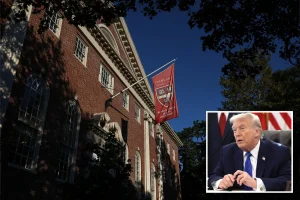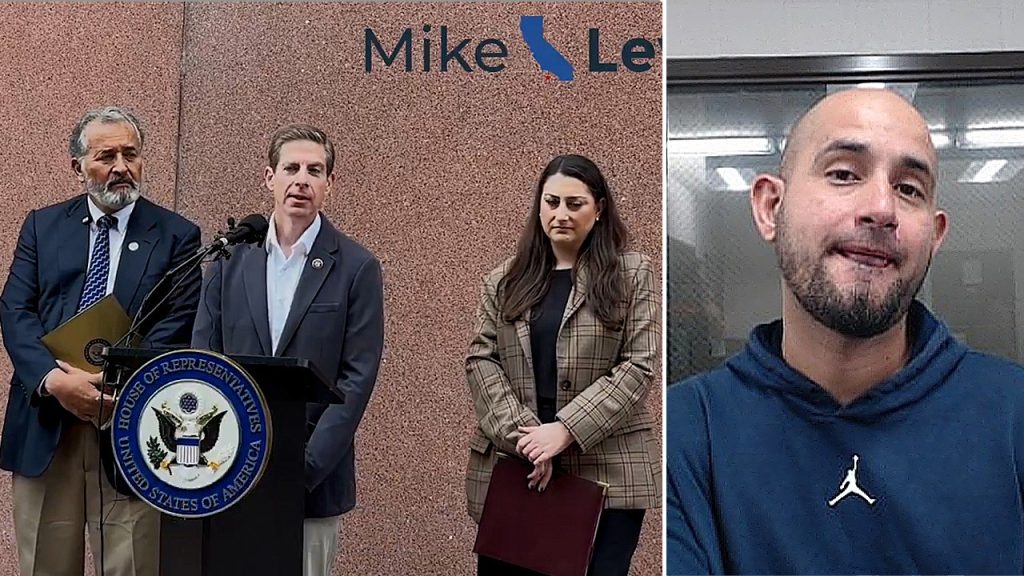Democrats and DHS Clash Over Detention Center Visit
In a controversial incident that has sparked heated debate between lawmakers and the Department of Homeland Security (DHS), four House Democrats found themselves at the center of accusations after visiting an ICE detention facility in San Diego. Representatives Juan Vargas, Mike Levin, Sara Jacobs, and Scott Peters were accused by DHS officials of deliberately meeting with a criminal illegal immigrant during their Monday visit, with Assistant Secretary Tricia McLaughlin claiming they “chose to stand with criminal illegal aliens over American citizens.” The individual in question, Dennis Mauricio Rojas-Molina, is a Honduran national who has been charged with kidnapping and domestic abuse. However, the visit has raised important questions about detention center oversight, immigration enforcement priorities, and the communication breakdown between elected officials and federal agencies.
The controversy hinges on conflicting accounts of what actually occurred during the lawmakers’ visit. According to Representative Peters’ office, the delegation did not specifically request to meet with Rojas-Molina or any particular detainee. Rather, they had requested the oversight visit weeks in advance to ensure proper due process was being followed at the facility. When they arrived and asked to speak with “any detainee,” ICE officials presented them with Rojas-Molina, who was one of three detainees present. Peters’ office further stated that DHS has not provided any evidence to show that Rojas-Molina was actually convicted of the crimes alleged, highlighting the distinction between charges and convictions—a critical legal difference. This discrepancy reflects the often complicated nature of immigration cases, where individuals’ legal statuses and criminal histories can be complex and multifaceted.
The background of Rojas-Molina adds another layer to this contentious situation. According to DHS, he was previously arrested by U.S. Border Patrol in 2015 during the Obama administration near Lukeville, Arizona. After being released into the country, an immigration judge ordered his removal several months later, leading to his deportation in October 2015. At some point after this deportation, he allegedly reentered the United States illegally. In May of this year, he was arrested on charges of kidnapping and spousal battery. These details have been emphasized by DHS officials to support their characterization of the individual as a dangerous criminal who should not be in the country. However, Rep. Mike Levin noted in a news conference that the detainee has two children, ages 11 and 5, suggesting the human complexity behind immigration cases that often involve family separation concerns.
The dispute has rapidly evolved into a broader political argument about immigration enforcement priorities. DHS strongly pushed back against claims made by Rep. Sara Jacobs on social media that “ICE isn’t going after criminals; they’re targeting your neighbors and friends.” The department countered by stating that 70% of illegal immigrants arrested by ICE have criminal convictions or pending charges in the United States. They also emphasized that their enforcement efforts continue to focus on “murderers, rapists, gang members, pedophiles, terrorists and other dangerous individuals.” This exchange highlights the fundamental disagreement between progressive Democrats who often view ICE enforcement as overly aggressive and potentially discriminatory, and those who believe strict immigration enforcement is necessary for public safety and national security concerns.
The inflammatory rhetoric from both sides reveals the deeply polarized nature of immigration policy in America today. Assistant Secretary McLaughlin’s characterization of the representatives as “sanctuary politicians” who “continue to do the bidding of criminal illegal aliens” demonstrates the emotionally and politically charged atmosphere surrounding immigration discussions. Meanwhile, Rep. Levin’s statement that detainees like the one they met “need a path to stay” and “a path to legal status so that they can continue to work hard and contribute positively to our economy” highlights the progressive perspective that many undocumented immigrants are contributing members of society who deserve humanitarian consideration. The gulf between these perspectives has made immigration reform exceptionally difficult to achieve in recent years, despite widespread agreement that the current system is deeply flawed.
At its core, this incident reflects broader questions about congressional oversight of federal agencies, transparency in immigration enforcement, and the balance between public safety concerns and humanitarian considerations. Congressional representatives have both the right and responsibility to conduct oversight visits to ensure that federal agencies are operating properly and that all individuals—regardless of immigration status—are afforded their legal rights and treated humanely. However, federal agencies like ICE and DHS are tasked with enforcing immigration laws as currently written, which includes removing individuals who have entered the country illegally, especially those with criminal records. The tension between these different governmental roles and responsibilities is playing out against the backdrop of a politically divisive issue that touches on fundamental questions about American identity, security, and values. As this particular case demonstrates, even a routine congressional oversight visit can quickly become emblematic of the larger political battle over immigration policy in America.















